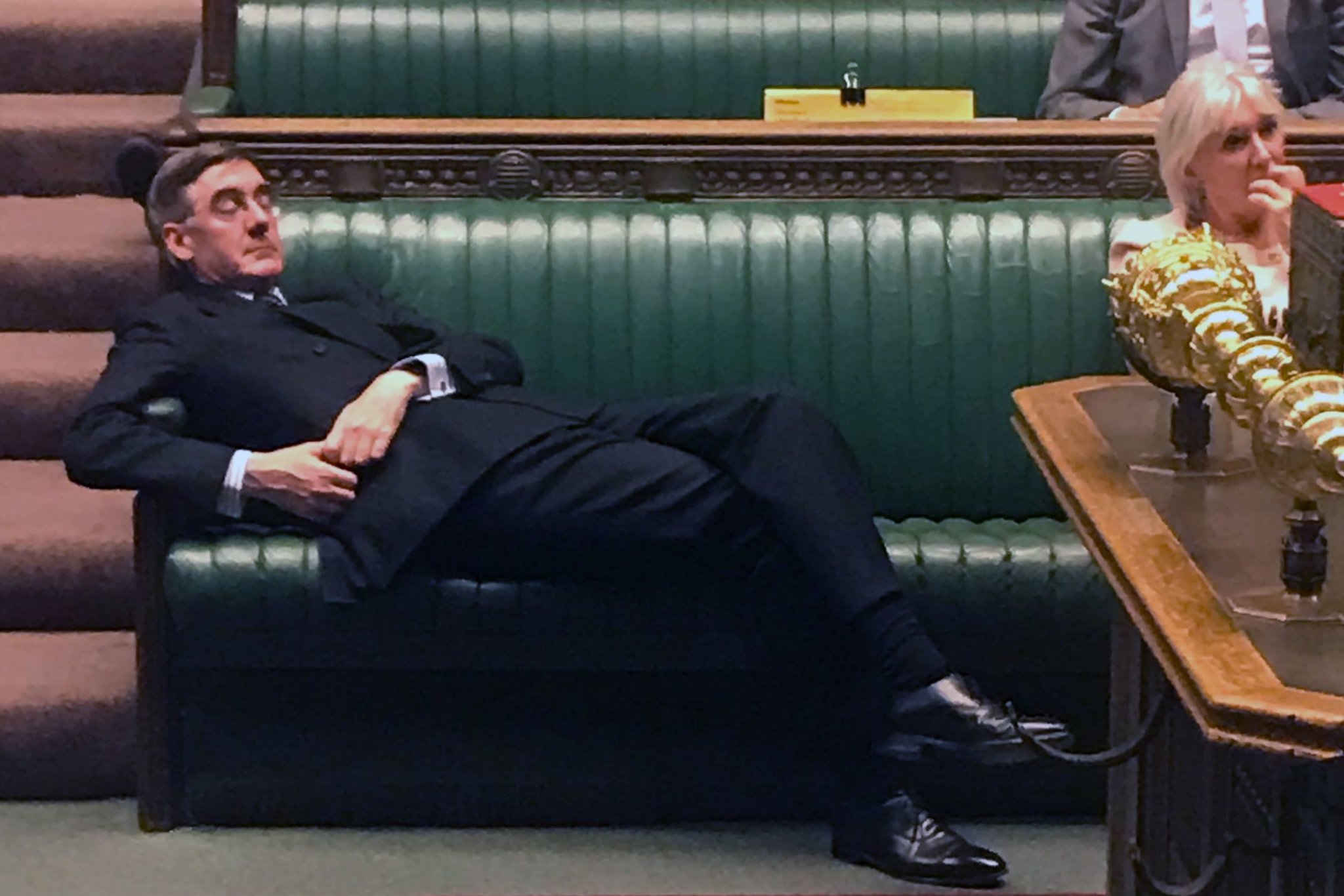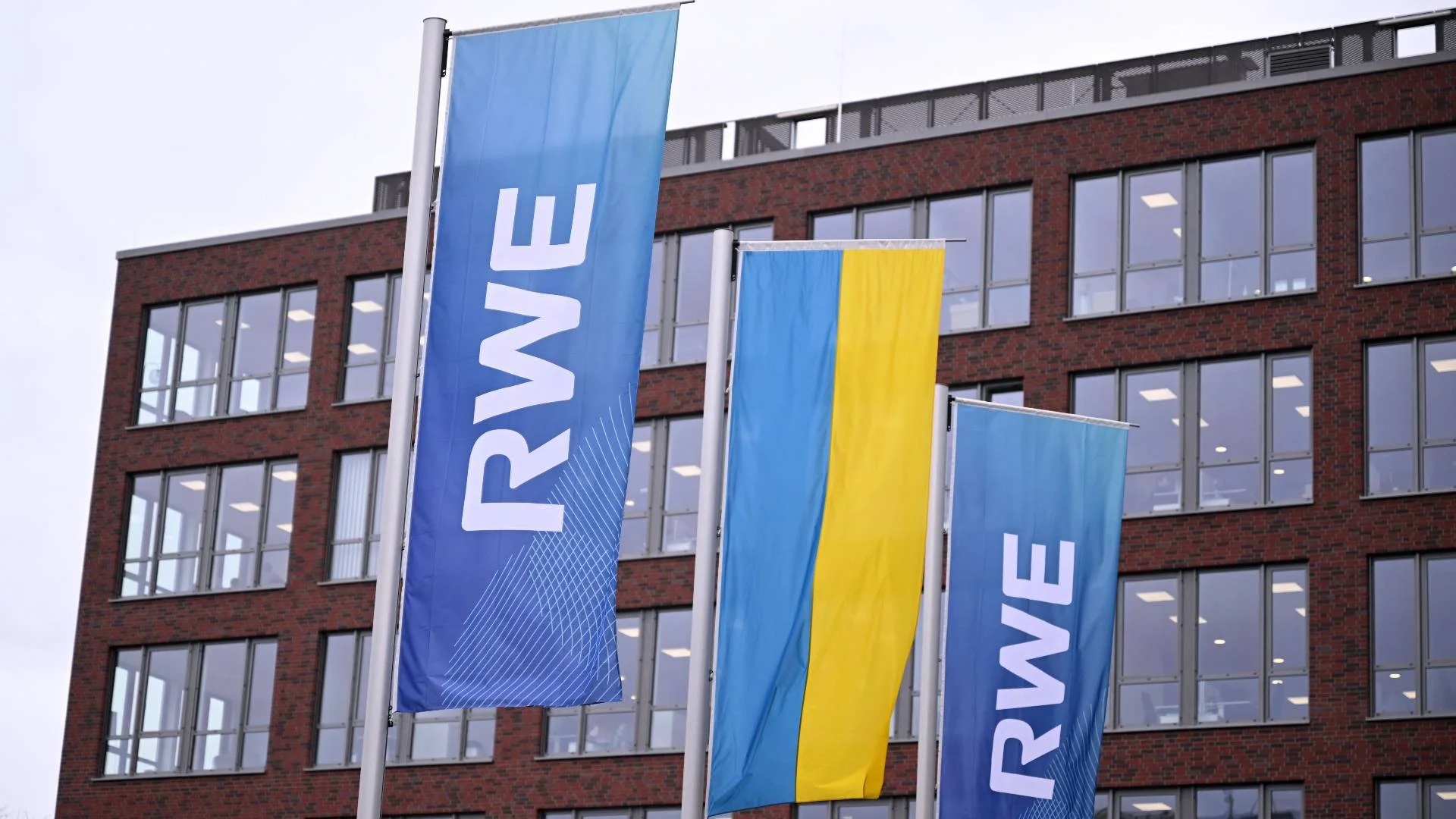Business
Jacob Rees Mogg: Galvanises businesses with action on energy

Westminster unveils energy support for businesses
NON WEDNESDAY, September 21, the UK Government announced new support for households, businesses and public sector organisations facing rising energy bills in Great Britain and Northern Ireland.
Through a new government Energy Bill Relief Scheme, the government will provide a discount on wholesale gas and electricity prices for all non-domestic customers (including all UK businesses, the voluntary sector like charities and the public sector such as schools and hospitals) whose current gas and electricity prices have been significantly inflated in light of global energy prices.
The support will be equivalent to the Energy Price Guarantee put in place for households.
It will apply to fixed contracts agreed on or after April 1, 2022, and to deemed variable and flexible tariffs and contracts.
The Price Guarantee will apply to energy usage from 1 October 2022 to 31 March 2023, running for an initial six-month period for all non-domestic energy users.
The savings will be first seen in October bills, which are typically received in November.
As with the Energy Price Guarantee for households, customers do not need to take action or apply to the scheme to access the support.
Support (in the form of a p/kWh discount) will automatically be applied to bills.
RISK OF BUSINESSES MISSING OUT
The price reduction level for each business will vary depending on their contract type and circumstances.
Non-domestic customers on existing fixed-price contracts will be eligible for support as long as the contract was agreed on or after April 1, 2022.
Provided that the wholesale element of the price the customer is paying is above the Government Supported Price, per unit energy costs will automatically be reduced by the relevant p/kWh for the duration of the Scheme.
Customers entering new fixed price contracts after October 1 will receive support on the same basis
those on default, deemed, or variable tariffs will receive a per-unit discount on energy costs, up to a maximum of the difference between the Supported Price and the average expected wholesale price over the period of the Scheme.
Non-domestic customers on default or variable tariffs will therefore pay reduced bills, but these will still change over time and may still be subject to price increases.
The government is working with suppliers to ensure all their customers in England, Scotland and Wales are allowed to switch to a fixed contract/tariff for the duration of the scheme if they wish, underpinned by the government’s Energy Bill Relief Scheme support for businesses on flexible purchase contracts, typically some of the largest energy-using businesses.
The government will provide equivalent support for businesses not connected to the gas or electricity grid. Further detail on this will be announced shortly.
SUPPORT MUST AVOID
THE CLIFF EDGE
The government will publish a review of the scheme’s operation in three months to inform decisions on future support after March 2023.
The review will particularly focus on identifying the most vulnerable non-domestic customers and how the government will continue assisting them with energy costs.
Prime Minister Liz Truss said: “I understand the huge pressure businesses, charities, and public sector organisations are facing with their energy bills, which is why we are taking immediate action to support them over the winter and protect jobs and livelihoods.
“As we are doing for consumers, our new scheme will keep their energy bills down from October, providing certainty and peace of mind.
“At the same time, we are boosting Britain’s homegrown energy supply, so we fix the root cause of the issues we are facing and ensure greater energy security for us all.”
Kate Nicholls, CEO of UKHospitality said: “This intervention is unprecedented, and it is extremely welcome that the government has listened to hospitality businesses facing an uncertain winter. ef
“The government has recognised the vulnerability of hospitality as a sector, and we will continue to work with the government, to ensure that there is no cliff edge when these measures fall away.”
SOME BUSINESSES WILL FALL
BETWEEN THE CRACKS, SAYS FSB
Tina McKenzie, Policy and Advocacy Chair, Federation of Small Businesses (FSB) said: “This announcement will give certainty for the next six months, but a tough year remains ahead of many small firms.
“Many have been waiting for details on the energy bills support package to plan confidently for the winter and beyond, so it’s encouraging to have clarity from the Government on the form that its support will take.
“The next stage will be for small businesses to learn what the changes mean for their current contracts and for any offers they have been looking at.
“Subsidising the unit costs of electricity and gas for six months is welcome, but there are those who miss out from before the six-month period, and help must not result in a cliff-edge afterwards.
“We are calling for a hardship fund to be created for those who fall outside of the current support or for whom the current support will be insufficient.
“There will be hardship for some businesses which signed fixed contracts after prices rose but before April, who find themselves excluded from the scheme.
“FSB calls on energy suppliers to allow those customers to switch without charge to new fixed contracts, covered by the Energy Supported Price if that makes the difference for the small business to survive.
“Small businesses are the definition of vulnerable when it comes to these energy price hikes. Small firms do not have the ability to hedge, or negotiate energy prices, so we will be encouraging Government to continue to help small businesses across all different sectors after the six months have elapsed.”
Ms McKenzie called for common sense and understanding from the energy industry, which will continue to reap massive profits: “Energy companies must play their role to support their small business customers.
“Energy providers must pass on the benefit of the freeze in full and must immediately provide updated bills and quotes to each small business customer who will be wondering today what the changes mean for them.
“We’re concerned that there is no mention of a cap on rises to standing charges, which are the other main element of energy bills. While households’ standing charges will be capped, the same can’t be said for businesses.
“We call on energy suppliers to support their small business customers by committing to lowering standing charges as far as possible.
“We’d like to see energy companies promise not to disconnect businesses from energy supply that are currently unable to pay for their energy bills this winter and not ask for disproportionate upfront payments.
“Currently, small firms could be disconnected from energy supply if they cannot pay bills after 30 days.
“We will be writing to energy companies in this regard and encourage them to support their small business customers in this difficult period.”
SHORT-TERM FIX FOR
LONG-TERM PROBLEM
Matthew Fell, CBI Chief Policy Director, said: “We welcome the government’s quick and decisive action to provide hard-pressed businesses with a substantial short-term fix to a long-term problem.
“The package will ease worries about otherwise viable businesses shutting up shop, and smaller companies especially will benefit from the discounted rate.
“Businesses will also want to know more about the exit strategy and what happens when the six-month cap runs out. Working closely with businesses will be key to successful implementation.
“The long-run solution is to double-down on energy security and to incentivise firms to push ahead with ambitious energy efficiency programmes to lower demand.”
Business
Workplace volunteering could boost productivity and unlock billions

EXPANDING workplace volunteering opportunities to cover all employees in the UK could generate billions in economic gains (£1.2 billion – £3.6 billion per year in wellbeing benefits to individuals, £1.6 billion – £2.8 billion per year in improved net productivity)
Ensuring all employees have access to volunteering opportunities could save between 1.4 million and 2.5 million working days of sickness absence.
Workplace volunteering has the potential to boost productivity, improve employees’ wellbeing, and generate billions for the UK economy, according to a new report by Pro Bono Economics (PBE).1
The report – ‘Triple dividend: How workplace volunteering can make us happier, healthier and more productive’ – which has been produced for business volunteering charity Pilotlight, found that net productivity gains of between £1.6 billion – £2.8 billion could be unlocked for the UK economy by expanding workplace volunteering opportunities.2
PBE’s analysis revealed that 17 – 23 million employees currently do not have access to workplace volunteering, and so are missing out on the health benefits of volunteering and the opportunities to learn new skills. By expanding workplace volunteering opportunities to cover all employees in the UK, the current untapped potential could generate £1.2 billion – £3.6 billion in wellbeing benefits per year to the individuals themselves.
It could also reduce levels of absenteeism, with research showing that participation in a workplace volunteering scheme provides an average reduction in absence of around 0.9 days per year for each member of staff volunteering.3 The number of days that employees have taken off work due to illness has risen sharply since the pandemic, with 186 million lost alone in 2022, an increase of more than a third over the 2019 level. The total cost of sickness absence to UK employers was around £24 billion – roughly equivalent to the GDP generated by Newcastle – or £6.4 billion higher than if absence rates stayed at the 2019 level.4
Turning to the productivity benefit overall, the PBE report points to studies which have suggested the productivity impact of workplace volunteering is sizeable, with high-skilled individuals who volunteer experiencing an estimated £2,300 boost to earnings. If the estimated productivity increase was applied to all the 1.4 – 2.5 million additional volunteers who participated from workplace volunteering to all employees, it could provide a gross productivity increase of between £2.2 billion and £3.9 billion.
Even after deducting the costs of lost time and administration fees for volunteering schemes, the productivity benefits could amount to net productivity gains of between £1.5 billion and £2.8 billion to the UK economy.5
There is a clear appetite from employees from the expansion of workplace volunteering. Analysis by NCVO suggests that between one quarter and a third of employees will take advantage of workplace volunteering when it’s available. This means that between 1.5 million and 2.8 million additional people might volunteer if workplace volunteering schemes were expanded across all employers.
While boost workplace volunteering would have some costs to the employer, the benefits more than outweigh those costs. For the employer, workplace volunteering schemes such as those run by Pilotlight which bring businesses and charities together could deliver between £1.50 and £3.60 of benefits for every £1 spent.
To make the most of the opportunity, research by the charity has suggested that employers should take steps to help employees around the options for volunteering. More than a third of employees surveyed (38%) said that an obstacle to volunteering is a lack of guidance from their employer. Of those currently involved in workplace volunteering, 79% believe that businesses themselves benefit from the practice.6
The benefits also have the potential to positively impact on communities, at a time when they are in need of extra support. Three in ten (30%) charities reporting increased rates of staff burnout as they struggle with the triple challenge of rising demand, difficulties recruiting volunteers and challenges with recruitment. This is particularly true of small charities, with almost six in ten (59%) reporting that recruiting volunteers is a major concern for them following a long-term decline in volunteer participation rates.8
Dr Jansev Jemal, Director of Research and Policy at Pro Bono Economics, said: “Increasing access to workplace volunteering opportunities has a triple dividend, as it could boost productivity and unlock billions in the UK economy, while providing much needed support for charities. In addition to wellbeing for employees, there’s a compelling, hard-nosed business case for considering workplace volunteering, including boosts to health and skills.
“As businesses take up this opportunity, there is a need to be realistic about the challenges for the charities themselves. Using volunteers effectively takes resources to manage, oversee and support those that are giving up their time. Businesses and other funders will need to consider how they can benefit by supporting the underlying costs of volunteering programmes, rather than assuming that an offer of time alone will suffice.”
Ed Mayo, Chief Executive of Pilotlight, said: “When it comes to business and charity, these results change everything – volunteering is not a cost, it is an investment. It is good for charity, good for the volunteer and good for the bottom line.
At the heart of this, in the partnerships we have designed with a range of leading businesses, is how employees develop their skills as they deploy them in a radically different setting. In future, it will not be the PR or corporate affairs department that leads on employee volunteering, but HR leaders who see it as an integral part of their toolkit for developing talent and skills.”
Jack Kidder, Responsible Business Manager at Henry Boot PLC, said: “At Henry Boot, we know that volunteering empowers our people to dedicate their time, skills, and passion for the benefit of our communities. This is not only impactful for charities, but also hugely beneficial for our business. Volunteering their time allows our people to connect with issues they care about in the communities in which we work and live. It creates a genuine sense of purpose and cohesion as our people come together to make a real difference for others – whether through inspiring learners, supporting communities, restoring habitats, or sharing knowledge. Volunteering enables our people to develop their skills and experience the positive wellbeing effects associated with helping others. This use of our time is helping shape our evolving culture as we celebrate being a long-term sustainable business that genuinely cares for the communities we work with, while we create exciting new places across the UK.”
Alexandra Berry, Head of Sustainability at the Strand Palace Hotel said: “Our team love to get involved in team-building hikes, red nose days, wellbeing walks, ‘Wear it Pink’ days, charity runs, bingo nights, themed quizzes, clothing donation drives, as well as offering our team a paid volunteering day each year. Feedback from our team has expressed these community events provide socialisation and relaxation outside of the hotel alongside contribution to a charitable cause, of which they are passionate about supporting.
“In 2023, the team raised over £3,000 through 8 local fundraising activities. What’s more, we have a regular commitment with The Connection at St Martins for our team members to volunteer to spend time with The Connection’s guests in their art room. With arts, crafts and chatting, the visits from the Strand Palace team help to build the guests’ confidence and social skills, providing a creative outlet away from the stress of being homeless.”
Business
RWE launches consultation on Pembroke’s new Green Hydrogen plant

RWE has announced plans to establish a state-of-the-art green hydrogen facility next to the Pembroke Power Station.
The proposed project will see the construction of a 110 MWe electrolyser plant capable of producing approximately two tonnes of hydrogen per hour, a cleaner alternative energy source that promises to significantly reduce carbon emissions in the area.
Starting Monday, RWE will open a pre-application consultation, inviting local residents and stakeholders to share their insights and opinions on the plans. This consultation period will conclude on 20 May 2024. Interested parties are encouraged to review the details and submit their feedback online, ensuring community input is integrated into the development process.
The hydrogen produced at the Pembroke Green Hydrogen plant will serve as a vital component in reducing reliance on fossil fuels for local industries, substituting them with a cleaner option that produces only oxygen as a by-product. With the capacity to cut approximately 93,000 tonnes of CO2 emissions annually—equivalent to removing 18,600 cars from the road—the facility aligns with the UK Government’s target of achieving 6 GW of green hydrogen production by 2030.
Richard Little, Director of the Pembroke Net Zero Centre, emphasized the importance of local support for the initiative: “To secure the future of industry in South Wales, and safeguard local jobs, we need to provide clean energy alternatives, locally. Our proposals for green hydrogen generation will do just that, helping to reduce CO2 emissions in local industrial activities by approximately 93,000 tonnes every year.”
RWE’s vision for the Pembroke Net Zero Centre, where the plant will be located, includes a diverse array of sustainable technologies, such as battery energy storage systems and floating offshore wind. The development is expected to bolster Pembrokeshire’s economy by preserving existing jobs and creating new opportunities through the construction and operational phases of the project.
Community members are invited to contact the project team, provide feedback via the project website, or arrange private discussions to further understand the project’s scope and impacts. This consultation offers a crucial opportunity for residents to influence a project that stands to reshape the region’s industrial landscape while advancing towards a sustainable future.
RWE, the UK’s largest power producer and a leader in renewable energy generation, continues to expand its green hydrogen capabilities across the country, targeting 2GW of electrolyser capacity in its core markets by 2030.
Business
Two firms, one in Wales, fined £340k for aggressive marketing calls

THE Information Commissioner’s Office (ICO) has fined Cardiff-based Outsource Strategies Ltd (OSL) £240,000 and London-based Dr Telemarketing Ltd (DRT) £100,000 after the companies made a total of almost 1.43 million calls to people on the UK’s “do not call” register, the Telephone Preference Service (TPS).
The calls, all made between 11 February 2021 and 22 March 2022, resulted in 76 complaints to the ICO and the TPS. People who complained said the callers were aggressive and used high-pressure sales tactics to persuade them to sign up for products. The ICO investigation also found evidence that both companies were specifically targeting elderly and vulnerable people.
Andy Curry, ICO Head of Investigations, said: “All the people targeted by these nuisance calls should not have been called in the first place. They had all taken action to protect themselves by registering with the UK’s “do not call” register.
“It is unacceptable they were repeatedly interrupted and subjected to aggressive and unpleasant marketing, particularly as some of the victims told us they were people with vulnerabilities. I would like to thank those who took the time to report to us, as this helped our investigation to bring these two companies to account.
“All companies engaging in direct marketing should take note. If you flout the law, you can expect the ICO to use the full force of its regulatory powers against you.
“And, as in this case, it doesn’t matter how complicated the network of companies and individuals are, we will work through the evidence to find and take action against the perpetrators of these unlawful calls to protect the public.”
Details of the unwanted calls: “My husband took the call. He has communication difficulties – he is vulnerable and doesn’t understand not to answer the telephone. I suspect he has been sold stuff by these companies in the past. For health reasons, I need to stop them ringing …”
“We’ve requested numerous times to be taken off the list but to no avail. The telephone number today is one of several different numbers that they use. This has now become harassment of two senior citizens.”
“Tried to get me to join the Irish lottery and probably wanted my bank details. It made me annoyed and … anxious. I’m getting sick up to the back teeth of these types of calls. I even get them on my UNLISTED [sic] number.”
“… He had all my personal details which he said he had got from [redacted] … He was trying to persuade me to buy cut-price lottery tickets for the Irish Lottery … I said I would not give any card details over the phone as I had no way of checking where he was calling from. I asked him to send me an email so I could carry out due diligence on this offer and the company. He said he could not do that unless I bought the tickets first. I was not prepared to do this and so ended the call. When I checked the number, Google seemed to suggest this number is associated with a scam company. I was concerned because [redacted] … target older people who could get confused and be talked into something like this more easily.”
Details of each fine
Outsource Strategies Ltd, based in Cardiff, made 1,346,503 unwanted marketing calls between 11 February 2021 and 22 March 2022 to numbers registered with the TPS. The ICO received 74 complaints from people variously saying they received repeated calls despite requests to stop and that the callers were aggressive.
During the investigation, OSL blamed TPS screening responsibility on its contracted partners and stated it also had internal systems in place to ensure this did not happen. The ICO found this to be incorrect, as 141,914 calls were still made to people marked as “do not call” on its own systems.
The investigation also uncovered that OSL Directors were involved with a separate company previously fined by the ICO. OSL has also been issued with an enforcement notice. OSL has appealed the monetary penalty notice and the enforcement notice.
Dr Telemarketing Ltd, based in London, made 80,240 unwanted marketing calls between 11 February 2021 and 22 March 2022 to numbers registered with the TPS. A total of two complaints were received. The highly exploitative unwanted calls were all made regarding Lotto Express and were targeted at vulnerable people to maximise profit.
During the investigation, the ICO uncovered what appeared to be a network of five people and eight companies all involved in deliberately making the unwanted calls. DRT argued opt-in details were supplied by its business partner and screening was provided by another company. The ICO found there was no mechanism in place to identify and mitigate against making unwanted calls and that screening was not contracted to cover all the data providers involved.
Despite repeated attempts to communicate with the company, DRT stopped engaging with the ICO during the investigation and failed to provide a satisfactory explanation for the Lotto Express calls. DRT has also been issued with an enforcement notice. DRT has not paid the fine or appealed the notice therefore the ICO is commencing financial recovery action.
ICO’s work to tackle nuisance communications
The ICO enforces the Privacy and Electronic Communications Regulations 2003 (PECR), which cover the rules for organisations wishing to make direct marketing calls, texts or emails.
The ICO’s direct marketing guidance makes it clear that organisations acquiring marketing lists from a third party must undertake rigorous checks to satisfy themselves that the personal information was obtained fairly and lawfully. Organisations must:
explain to people why they want to use their information;
tell people if they will share information with other organisations; and
make people aware of their data protection rights.
The ICO has issued more than £2.59 million in fines against companies responsible for nuisance calls, texts and emails since April 2023. Some of these investigations began with a single complaint from a member of the public.
For more information about the ICO’s work to tackle nuisance calls, emails and texts visit ico.org.uk/nuisancecalls.
Advice for the public
To help you, your friends and relatives stop receiving unlawful marketing calls, texts or emails you can:
Register landlines and mobile numbers with the Telephone Preference Service (TPS) and the Corporate Telephone Preference Service (CTPS) free of charge. The TPS and CTPS is a register used by legitimate marketing companies to identify people and businesses that have said they don’t want to receive marketing calls. Alternatively, you can tell the company directly that you do not wish to be contacted.
Report the receipt of unsolicited marketing text messages received on your mobile to the Mobile UK’s Spam Reporting Service by forwarding the message to 7726.
Refer concerns that you or someone you know has been the victim of fraud to Action Fraud (in England, Northern Ireland and Wales) and Police Scotland (in Scotland). You can refer wider concerns about a business’ practices to Trading Standards. Report any abandoned calls that you receive to Ofcom.
Ask your telephone network about call blocking solutions they may be able to offer. Many of these services are provided free of charge.
Report nuisance calls, texts or emails to the ICO via our website.
-

 News5 days ago
News5 days agoPolice issue update on the search for Luke, missing from Pembroke Dock
-

 News12 hours ago
News12 hours agoPolice and air ambulances at ‘serious incident’ at West Wales school
-

 Sport6 days ago
Sport6 days agoHerbrandston Clinch Promotion to Division One
-

 News4 days ago
News4 days ago20mph U-turn: Some roads will return to 30mph following public outcry
-

 Community4 days ago
Community4 days agoMiracle pup finds her forever home after heart-wrenching journey
-

 Community2 days ago
Community2 days agoCounty Hall to offer space for community banking
-

 Crime3 days ago
Crime3 days agoBrian Davis: Wanted on suspicion of commercial burglary
-

 News7 days ago
News7 days agoFirst step towards council tax and business rate reform



























